Sharif El-Mekki on Growing Educators of Color Through Pleasure, Duty and Honor
Key Points
-
Aspiring educators should have the requisites to spend time in their community as a part of their education.
-
Educators should be asking: how do we build cultures of cooperation and collaboration?
-
Investigate your intellectual genealogy to see where you are getting the ideas you have to question assumptions.
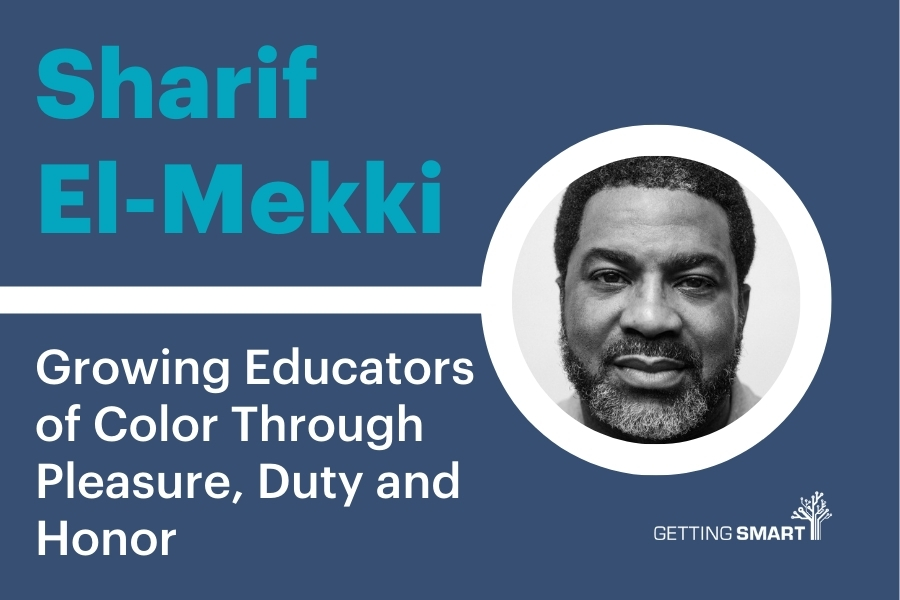
On this episode of the Getting Smart Podcast Shawnee Caruthers is joined by Sharif El-Mekki, Founder and CEO of the Center for Black Educator Development. A proud alum of Overbrook High School in Philadelphia, PA and the former principal of Mastery Charter, Shoemaker Campus, Sharif sees education as activism and teachers as civic leaders. Sharif is also the co-host of the 8 Black Hands podcast. His mantra, “We Need Black Teachers” is more than a rallying cry, but a deep desire to give voice to the over 8 million black learners that need to see themselves in their classrooms and community.
Links:
- Center for Black Educator Development
- Phillys7thWard
- 8 Black Hands podcast
- Teaching Pathways
- Center for Black Educators 2022 Report
- Dr. Gregg Carr
- Fugitive Pedagogy by Dr. Jarvis Givens
- Education of Black People by W.EB Dubois
- Speeches to the Youth by Malcolm X
- Black Teachers on Teaching by Dr. Michelle Foster
- Dr. Vanessa Siddle Walker
- Dr. Gholdy Muhammad
Transcript
Shawnee: Ah, Sharif, you mentioned that some of the formative years, though, that pre-K through sixth grade, were really important in shaping who you are today, which is interesting because so many students, regardless of color, don’t see a Black teacher ever or they don’t see them early in their education. They may have one a little bit later on, but it’s so minimal.
Shawnee: From your educational experience that truly shaped who you were, just that notion of representation and that sense of community from the very beginning. So, as you think about community building, how important is it? We talk about it, but truly, how important is it, and what are the benefits? Is that community building a slow and gradual process? Walk us through it for anyone who truly wants to lean into that space for their learners and their community.
Sharif El-Mekki: Yeah, I think community is absolutely critical to learning. One, you have to understand the relationship in communities between teaching and learning. Are you coming into a community assuming that they don’t value education? That their people haven’t sacrificed everything? People think, “Oh yeah, that was during slavery. Yeah, people tried to learn how to read.” There are people right now who risk jail and fines to get their kid into a school they’re not zoned for. There’s no parent who’s like, “Oh yeah, I want my child to be illiterate or taken advantage of. I want my child not to have critical thinking.” No one says that. But we have to start with the mindsets we have about communities and then be curious about their relationship with education.
Shawnee: Fly.
Sharif El-Mekki: Both positive and negative, because some of their distrust was honed and refined in the schools that we’re in. They have experience, they have history, and unfortunately, they have circumstances in their relationship with that school. But that’s different from education. If we can understand that, we can see that they may have significant distrust and apathy towards schooling, but education, their communities are constantly teaching and learning from each other, sharing resources, sharing ideas. All of that is education. If we can separate the two and understand the experiences, they have a right to distrust a system that may have failed them for generations. But that doesn’t mean they don’t care about education, literacy, or critical thinking. That reveals more about ourselves than the people we often talk about as educators.
Shawnee: There.
Sharif El-Mekki: When I think about my school experience, from pre-K to tenth grade, I had one white teacher, Mrs. Reynolds, in kindergarten. Most of the people I remember were Black and Brown. My kindergarten experience was at an Islamic school, ICCS here in Philadelphia. I only remember Mrs. Reynolds being the white person in the school. Looking back, they must have really seen something in her about what they wanted us to achieve as kindergartners to hire her. I also remember education being on my cousin’s porch, with Dr. Suzette Hakeem teaching literacy to three, four, five-year-olds. It wasn’t just for me and my cousins; it was for the community. We’d all be on our indoor porch learning the Freedom Schools alphabet song. It was called Action Reading. It was very action-oriented, emphasizing that literacy was for activism.
Shawnee: There.
Sharif El-Mekki: I look at that as part of my educational experience as well.
Shawnee: How do we get back to that, Sharif? What is the front porch now? How do we create that sense of community? To use the cliché, it takes a village. How do we ensure that all the different support, guidance, and sense of belonging are involved in learning, not just the people in the buildings?
Sharif El-Mekki: That’s such a great question. I think it’s imperative. We make a mistake when we rely totally on institutions that weren’t built for us, that weren’t thinking about our development and liberation from the genesis. It’s like building a skyscraper fifty stories high and then deciding to add window dressings at the top and call it equity. When we think about liberation, we must consider the resources within our community, stitch them together, and ensure we’re listening and being curious about people’s experiences and what they need. That’s what SNCC did, what the Black Panther Party did, and what many activist groups did—they listened to the community and then served as leaders.
Shawnee: Moving.
Sharif El-Mekki: Everyone can pitch in and do something. There’s often an overreliance on institutions that weren’t originally crafted with Black children’s well-being in mind. It happens with grandmas and grandfathers, in our communities, on porches, in rec centers, after school. We need to think proactively, from birth, providing resources, books, and a manual for parents and children as part of their birthright. We have blueprints for how this was done in our communities around the country and the world. This didn’t just happen; it was developed in the specific socioeconomic and political circumstances of being Black in America. We have much to learn and retrieve from our continent.
Shawnee: Yeah, and you saying that, because we talk a lot about social capital. When you talk about listening to what we need, how do we listen for the things that are already in place? So often, communities of color, especially those under-supported or viewed from a deficit lens, already have a richness of capital that students are connected to and trust. How do we ensure that’s heard and those connections are nourished?
Sharif El-Mekki: One, that has to be valued. In Ed Prep programs, how often are they thinking about the value-add of communities, the critical learning that happened before students came to them, the history, and the understanding about life? Instead of thinking that everything good has a Eurocentric bent.
Shawnee: With him.
Sharif El-Mekki: I spoke to a white educator who said she didn’t understand the importance of connections to ancestors and communities until she started teaching around and being with Black educators. She realized that added so much to how she teaches today compared to her traditional training.
Shawnee: Both.
Sharif El-Mekki: She started thinking about histories, legacies, and learnings, centering on genius beyond the typical Eurocentric figures like Einstein. It really changed her vision about who contributes to civilization and their motivations for learning and love.
Shawnee: Um, when.
Sharif El-Mekki: At the Center for Black Educator Development, we talk about mindset and skills being critically important to leading classrooms, schools, and districts. Approaching communities with deficit thinking, assuming they have nothing to add or that you have nothing to learn from them, hinders your ability to lead a classroom and be in charge of children’s intellectual development. When Malcolm X asked, “Who taught you to hate yourself?” many students might say their school and educators did.
Shawnee: More yeah, but in a society where diversity can sometimes feel weaponized, as you talked about teacher prep programs, how do we arm our teachers with the knowledge to step into these communities? Not just Black and Brown communities, but any community, ensuring all perspectives are learned about regardless of class makeup? How do we change our teacher prep programs? If you were restructuring what teachers need to learn, what are the core tenets? How would you change the canon of voices they’re hearing in those programs?
Sharif El-Mekki: There’s so much work to do in that space. Educators are often trained in white American and Eurocentric educational theory and behavior theory—Freud, Horace Mann, John Dewey, B.F. Skinner, Piaget, and many others. Then, they’re told to go teach Black kids with those theories and frameworks, which are devoid of any understanding of Black or Brown children. Often, these theories come from people who are anti-Black, and yet they’re used to teach Black children.
Shawnee: Um.
Sharif El-Mekki: It’s not just what’s taught but also who’s doing the teaching. Dr. Greg Carr talks about the intellectual genealogy of the teacher. We should find anti-racist, liberatory, student-centered, and community-based threads in their intellectual genealogy. If we haven’t discussed Dr. Amos Wilson, Gloria Ladson-Billings, or Dr. Joyce King, or contemporary voices like Gholdy Muhammad and Zaretta Hammond, we aren’t grounding the work to educate folks. Dr. Kofi Lomotey talks about developing a canon of Black teaching traditions that, while developed for Black children, are actually good for everyone because they center humanity and community, and they have high expectations for both adults and children.
Sharif El-Mekki: This is less about others saying, “Oh, you’re just trying to get Black teachers.” This is about educators who understand that the well-being of Black children directly impacts society. Look at the school-to-prison pipeline and the adultification of Black children. Having teachers who are anti-racist, pro-Black, and understand liberation helps everyone, not just Black children. The ecosystem approach means understanding the community, school, family, student, and teacher as a unit. Dr. Jawanza Kunjufu talks about African-centered schools, where they even consider the custodian as part of the educational community. Do they understand the mission, the purpose of the school? Are they part of the ecosystem that impacts students’ learning and well-being?
Shawnee: I would love for you to reflect on this: how has your work centered you on your mission? You’ve spoken a lot about the mission and about supporting Black and Brown teachers. What drives you and what keeps you going in the midst of challenges? How do you stay centered and remind yourself of your mission?
Sharif El-Mekki: Yeah, for me, it’s really just the idea that it’s not just a job; it’s a mission, right? This work is deeply personal. It’s something that’s tied to my identity, my sense of purpose. When you think about the fact that every educator, every person, stands on the shoulders of someone else who helped them get there, I think about my ancestors. I think about the educators in my life who’ve impacted me, and I want to honor them by continuing that legacy. And for me, it’s also about understanding that education is a liberatory practice. It’s not just about reading and math; it’s about preparing students to be critical thinkers, to challenge the status quo, to understand their own power, and to use their education as a tool for their own liberation and the liberation of their communities.
Shawnee: Yes.
Sharif El-Mekki: So, what keeps me centered is the community. It’s the educators I work with who are committed to this mission. It’s the students who inspire me with their brilliance and resilience. And it’s the knowledge that this work matters. It has a profound impact not just on individual students, but on our society as a whole.
Shawnee: Absolutely.
Sharif El-Mekki: And, you know, it’s easy to get discouraged. There are so many challenges and systemic barriers, but the victories, both big and small, keep me going. Seeing a student have an “aha” moment, seeing a teacher feel empowered and effective, seeing a community come together to support their schools—those moments are incredibly powerful and motivating.
Shawnee: Yes.
Sharif El-Mekki: And it’s also about having a support system. I have mentors, colleagues, and friends who I can lean on, who remind me of why this work is important, and who help me stay grounded and focused.
Shawnee: Thank you for sharing that, Sharif. It’s really inspiring to hear about your journey and your dedication to this work. As we close out, what message do you have for educators out there who are striving to make a difference in their communities?
Sharif El-Mekki: I would say, stay the course. This work is not easy, but it is essential. Remember why you started, and keep that at the forefront. Find your community, build your support network, and lean on them. And always keep learning, keep growing, and keep pushing for change. Education is one of the most powerful tools we have to create a more just and equitable society. Your work matters, and you have the power to make a profound difference.
Shawnee: Thank you so much, Sharif. It’s been an honor to have you on the podcast. Thank you for your insights and for the incredible work you do.
Sharif El-Mekki: Thank you, Shawnee. It’s been a pleasure.
Shawnee: And thank you to our listeners for tuning in to this episode. We hope you found this conversation as inspiring and enlightening as we did. Until next time, take care and keep striving for greatness in education.
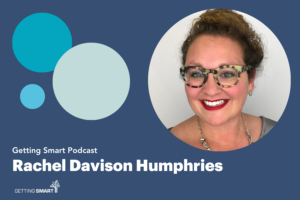

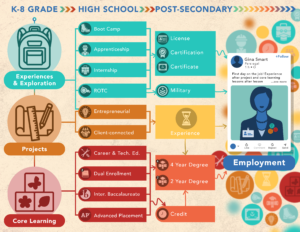
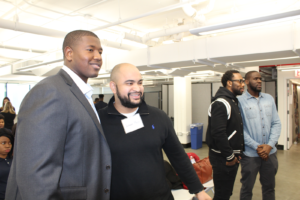
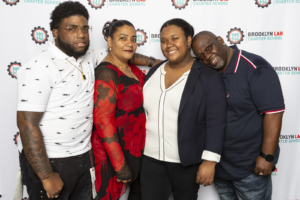
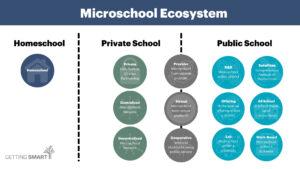
0 Comments
Leave a Comment
Your email address will not be published. All fields are required.